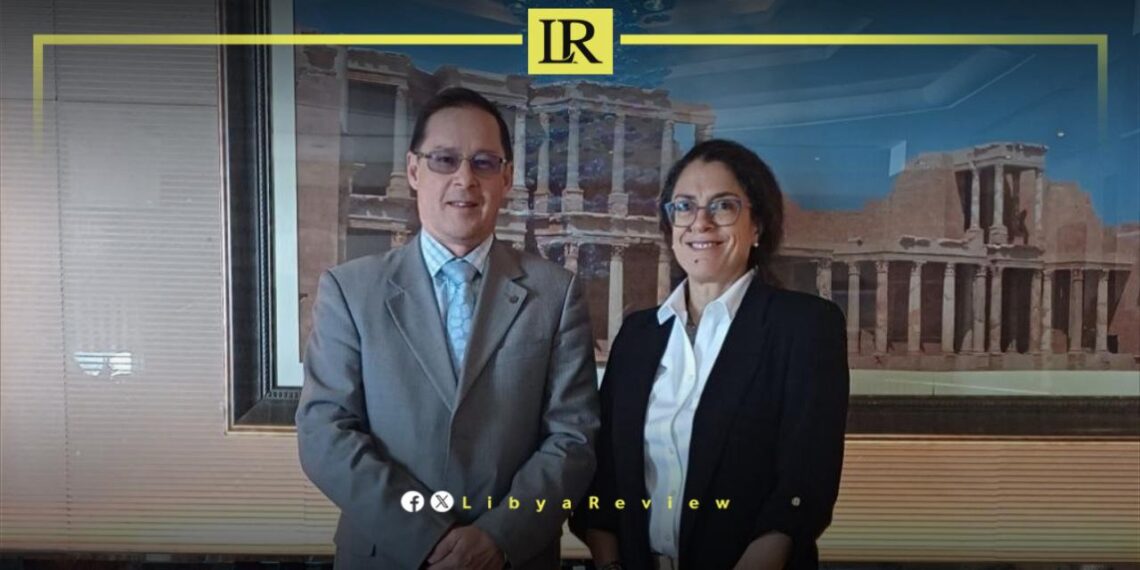On Saturday, the Deputy Special Representative of the UN Secretary-General and Acting Head of the United Nations Support Mission in Libya (UNSMIL), Stephanie Khoury, held crucial discussions in Tripoli with the Russian ambassador to Libya, Aydar Aganin, focusing on the current state of Libya’s political process.
Khoury announced on her social media platform, X (formerly Twitter), that both she and the Russian Ambassador emphasized the “necessity of coordinating efforts to find a solution based on national consensus among all political and social components in Libya.”
Since her recent appointment, Khoury has been actively engaging with both local and international stakeholders to break the political deadlock in Libya, a stalemate that contributed to the resignation of former UN envoy Abdoulaye Bathily. In line with these efforts, Khoury also met on Wednesday with the Spanish Ambassador to Libya, Javier Quintana, to discuss the need for regional and international cooperation to support Libya’s stability.
Libya has been mired in a complex civil conflict since the overthrow of Muammar Gaddafi in 2011. The country has been split between rival governments and numerous armed groups competing for control, leading to prolonged instability and violence. Efforts to stabilize the country have been hampered by deep-seated political divisions and intermittent clashes between rival factions.
The United Nations has played a central role in mediating the conflict and striving to establish a unified government. However, progress has been slow, with various peace agreements failing to achieve lasting peace and stability. The recent political impasse, exacerbated by the resignation of Abdoulaye Bathily, underscores the challenges faced by the international community in facilitating a lasting solution.
Stephanie Khoury’s recent appointment comes at a critical time for Libya. Her active engagement with key international players, including Russia and Spain, signifies a renewed effort to break the deadlock and foster a cooperative approach to resolving Libya’s political crisis.
The international community continues to play a pivotal role in Libya’s path to stability. With Khoury at the helm of UNSMIL, there is cautious optimism that renewed diplomatic efforts can pave the way for a more unified and peaceful future for Libya. The focus on national consensus and coordinated international support remains crucial as Libya navigates this challenging period in its history.


